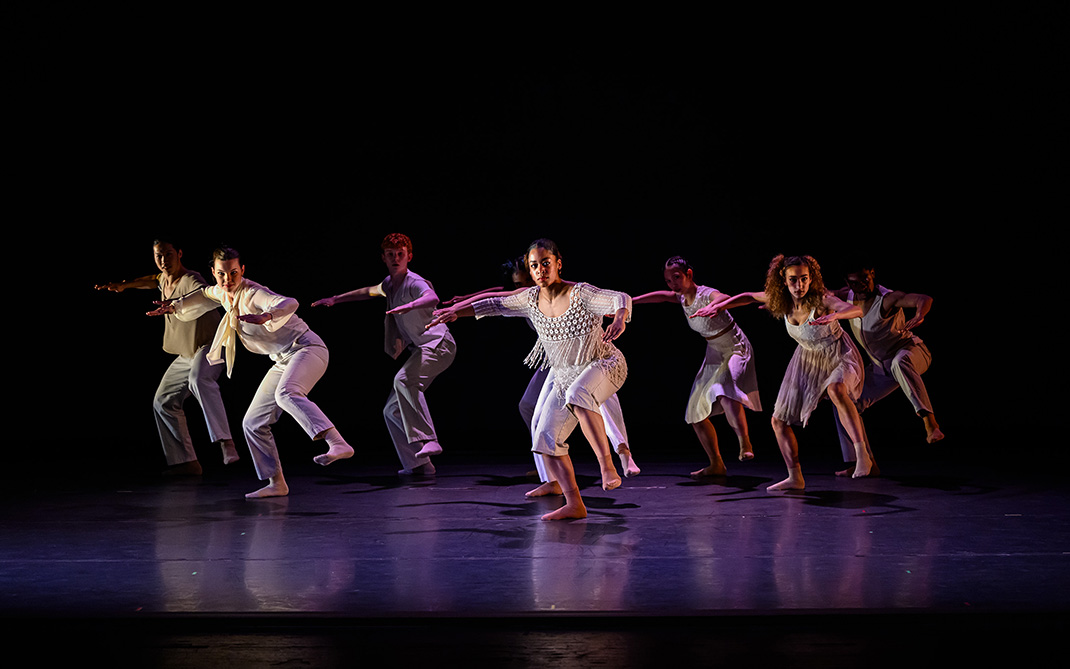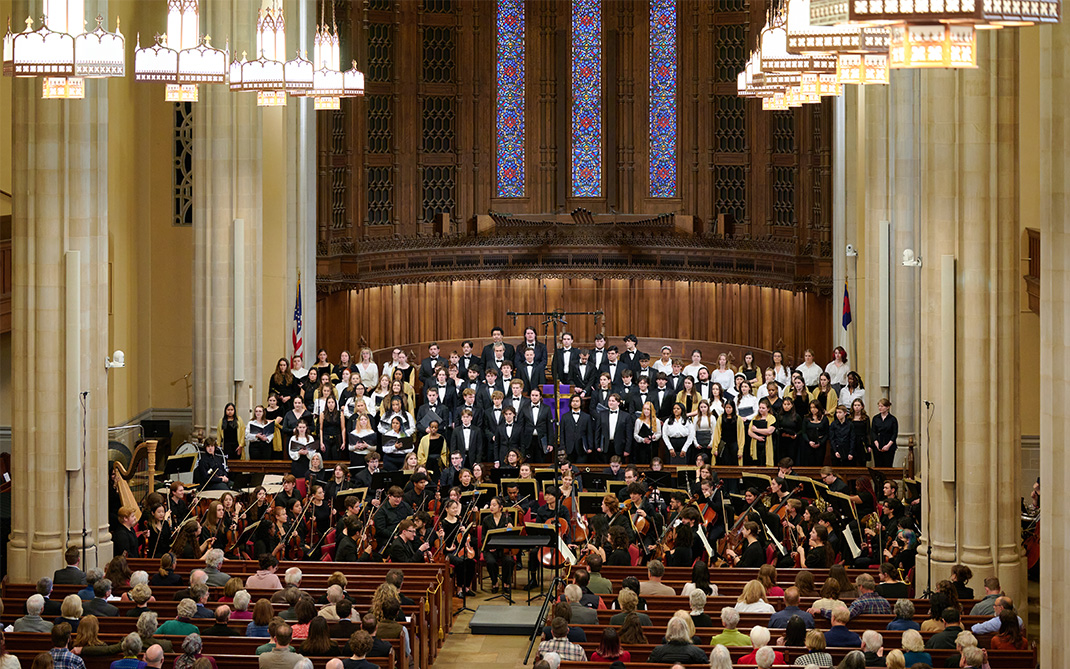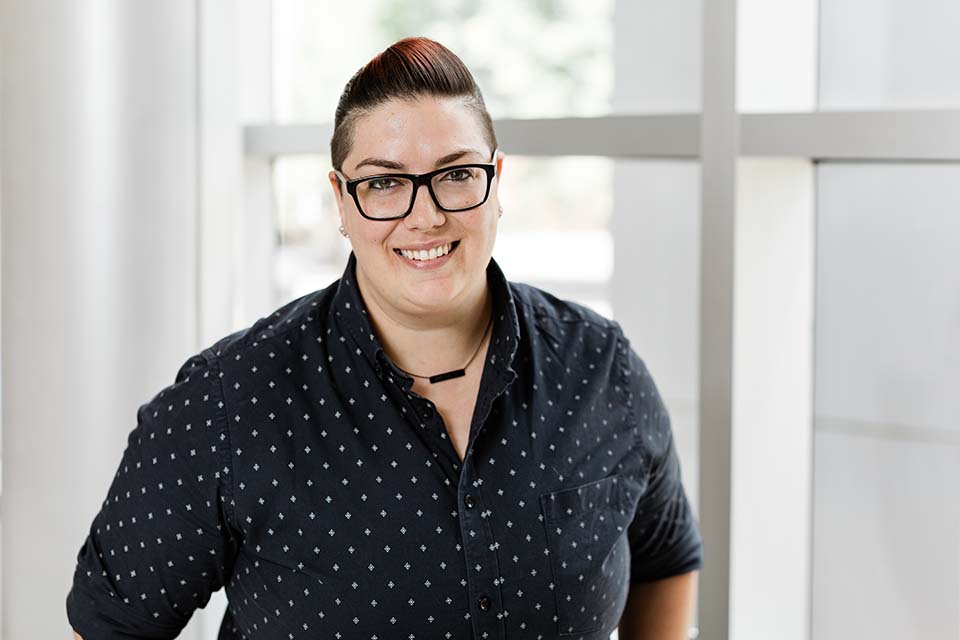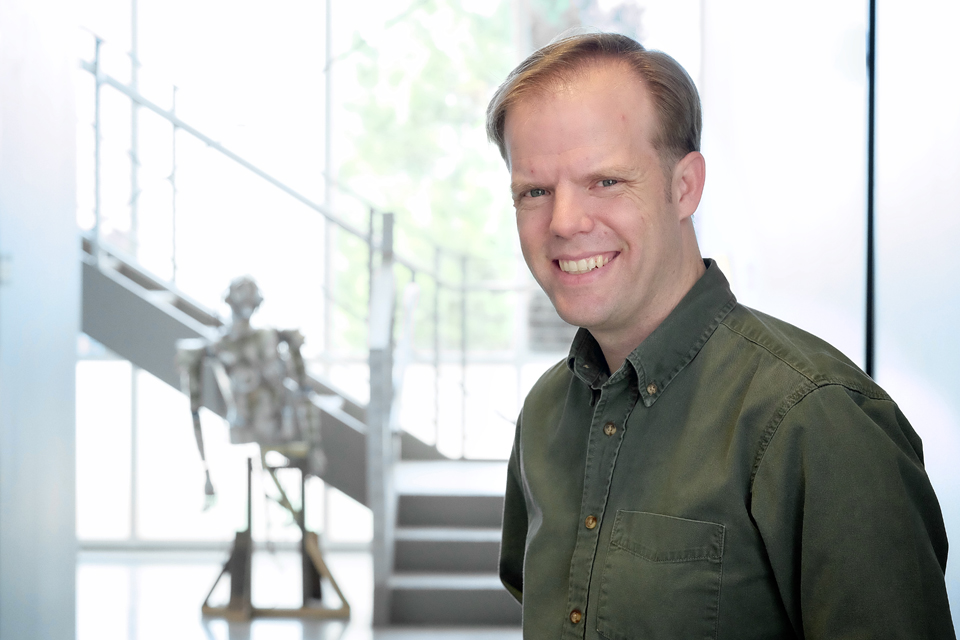Undergraduate Sound Design
Undergraduate Sound Design
If a musical crescendo takes your breath away, or an eerie stage whisper gives you chills, then the sound designer has done their job. It’s the sound designer’s job to take an empty room, and fill each inch of space with the right volume, pitch and tone for music, sound effects and vocals. This complicated study of sound and construction is offered in the four-year undergraduate Sound Design concentration at UNCSA.
Bachelor of Fine Arts
First Year
The Sound Design concentration focuses heavily on practical-based and production-oriented
instruction, while at the same time building your knowledge of basic theatrical elements.
In the first year, you will expect to crew the school’s wide variety of student-run
performances, including dance, drama, musicals and opera. You will intimately learn
about each performance venue as well as the sound facilities, which include a state-of-the-art
sound lab and a fully stocked sound shop with the latest equipment. Classes will include
introductions to theater sound, production, computer-aided drafting, and more to help
build a solid foundation for the intricate job of sound design.
Second Year
In your second year, you will become the Assistant Sound Designer for actual productions.
In that role you will be responsible for maintaining the sound system design paperwork,
working closely with the Sound Designer and the Head Sound Engineer. You will also
have opportunities to work as a member of the deck sound crew, which handles wireless
microphones, intercom and monitoring. Your classes will include theater sound design,
sound system design, and rigging, continuing to build on your knowledge of sound design
while giving you ample practical-production experience and hands-on laboratory instruction.
Third Year
Your responsibility within productions will continue to progress in your third year
as you take on the role of Head Sound Engineer. You will be responsible for taking
the preliminary sound system drawings from the Sound Designer and turning that into
a fully-assembled sound system. Once the system has been installed, you will operate
or mix the sound content for the production while supervising the sound crew. Each
performance space is “stripped” of all sound system technology, leaving a blank slate
for the Sound Design concentration students to create and execute the sound design.
Classes this year will cover sound system engineering, theater audio electronics and
production.
Fourth Year
In your final year, depending on your specialization, you will assume either the Sound
Designer/Composer or Sound System Designer role for a production, managing all that
is required of the position and working closely with others in the department to execute
your design. View the final sound system specs for a student-run production.
Intensive Arts Specialty Workshops
Our Sound Design concentration has close relationships with sound equipment manufacturers, and both Broadway and regional sound designers conduct specialized sound design workshops that are available to students during a two-week period every year. Not only will these classes further your sound design understanding and technical skills, but the relationships made with these guest lecturers can be instrumental in career choices upon graduation.
Careers in Sound Design
Our graduates boast an assortment of sound design careers. They have gone on to become sound engineers, technicians, department heads and sound designers for regional theaters. Others assist sound designers or are associate sound designers both off and on Broadway. Some are on the road working for touring musicals or dramas, while others are on the high seas running and/or designing shows on cruise lines. We have seen our graduates become install technicians in system integration companies, system designers in international audio-visual companies and even heads of sound departments for places of worship. For some, their experience and portfolio were enough to launch busy careers as freelance sound designers and technicians in major metropolitan areas.












